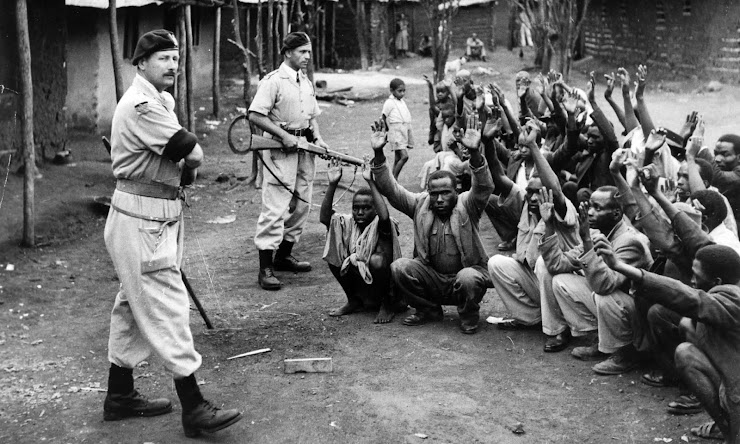The Mau Mau uprising had long fascinated scholars. It was an armed rebellion launched by the Kikuyu, who had lost land during colonisation. Its adherents mounted gruesome attacks on white settlers and fellow Kikuyu who collaborated with the British administration. Colonial authorities portrayed Mau Mau as a descent into savagery, turning its fighters into “the face of international terrorism in the 1950s”, as one scholar puts it.
The British, declaring a state of emergency in October 1952, proceeded to attack the movement along two tracks. They waged a forest war against 20,000 Mau Mau fighters, and, with African allies, also targeted a bigger civilian enemy: roughly 1.5 million Kikuyu thought to have proclaimed their allegiance to the Mau Mau campaign for land and freedom. That fight took place in a system of detention camps.
Marc Parry
If, like me, you read the novel The River Between and wondered what happens to the characters after the abrupt ending, this article is a good place to start. As I feared, the tension described in the book has erupted into open revolt, ending in the loss of countless lives.

Post a Comment